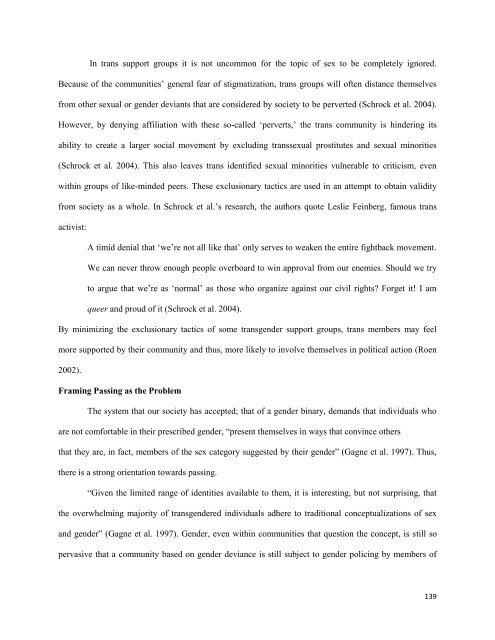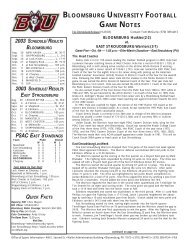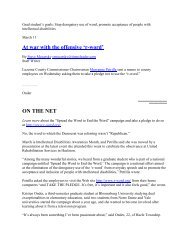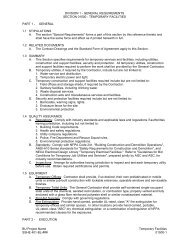Human Rights at Home and Abroad: Past, Present, and Future
Human Rights at Home and Abroad: Past, Present, and Future
Human Rights at Home and Abroad: Past, Present, and Future
Create successful ePaper yourself
Turn your PDF publications into a flip-book with our unique Google optimized e-Paper software.
In trans support groups it is not uncommon for the topic of sex to be completely ignored.<br />
Because of the communities‘ general fear of stigm<strong>at</strong>iz<strong>at</strong>ion, trans groups will often distance themselves<br />
from other sexual or gender deviants th<strong>at</strong> are considered by society to be perverted (Schrock et al. 2004).<br />
However, by denying affili<strong>at</strong>ion with these so-called ‗perverts,‘ the trans community is hindering its<br />
ability to cre<strong>at</strong>e a larger social movement by excluding transsexual prostitutes <strong>and</strong> sexual minorities<br />
(Schrock et al. 2004). This also leaves trans identified sexual minorities vulnerable to criticism, even<br />
within groups of like-minded peers. These exclusionary tactics are used in an <strong>at</strong>tempt to obtain validity<br />
from society as a whole. In Schrock et al.‘s research, the authors quote Leslie Feinberg, famous trans<br />
activist:<br />
A timid denial th<strong>at</strong> ‗we‘re not all like th<strong>at</strong>‘ only serves to weaken the entire fightback movement.<br />
We can never throw enough people overboard to win approval from our enemies. Should we try<br />
to argue th<strong>at</strong> we‘re as ‗normal‘ as those who organize against our civil rights? Forget it! I am<br />
queer <strong>and</strong> proud of it (Schrock et al. 2004).<br />
By minimizing the exclusionary tactics of some transgender support groups, trans members may feel<br />
more supported by their community <strong>and</strong> thus, more likely to involve themselves in political action (Roen<br />
2002).<br />
Framing Passing as the Problem<br />
The system th<strong>at</strong> our society has accepted; th<strong>at</strong> of a gender binary, dem<strong>and</strong>s th<strong>at</strong> individuals who<br />
are not comfortable in their prescribed gender, ―present themselves in ways th<strong>at</strong> convince others<br />
th<strong>at</strong> they are, in fact, members of the sex c<strong>at</strong>egory suggested by their gender‖ (Gagne et al. 1997). Thus,<br />
there is a strong orient<strong>at</strong>ion towards passing.<br />
―Given the limited range of identities available to them, it is interesting, but not surprising, th<strong>at</strong><br />
the overwhelming majority of transgendered individuals adhere to traditional conceptualiz<strong>at</strong>ions of sex<br />
<strong>and</strong> gender‖ (Gagne et al. 1997). Gender, even within communities th<strong>at</strong> question the concept, is still so<br />
pervasive th<strong>at</strong> a community based on gender deviance is still subject to gender policing by members of<br />
139
















